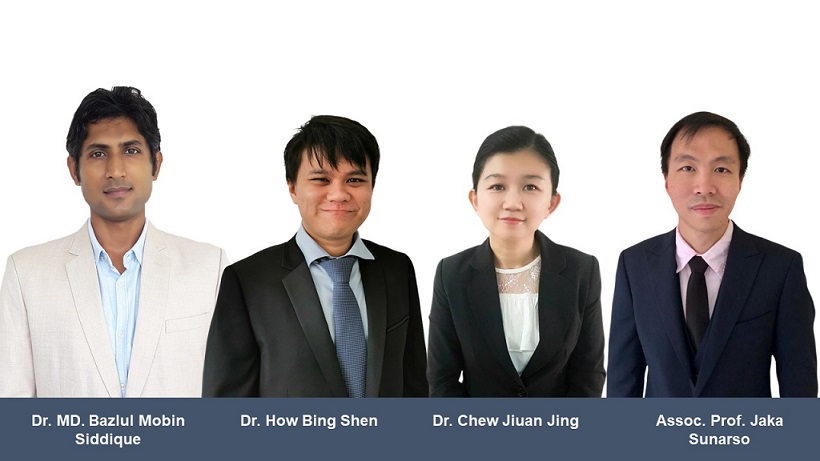KUCHING – Three projects from Swinburne’s chemical engineering programme successfully received a total of RM362,944 grant from the Ministry of Higher Education (MoHE) under the Fundamental Research Grant Scheme (FRGS).
Swinburne’s School of Chemical Engineering and Science is committed to pursuing innovative research that delivers solution to real-world problem through intensive collaboration with leading researchers nationwide. This is evidenced by the grant awarded to the chemical engineering researchers which accounted for over 65% of the total FRGS fund allocated to the university this year.
Swinburne’s Sustainable and Clean Energy Cluster Leader Dr Chew Jiuan Jing together with Associate Professor Jaka Sunarso and Dr How Bing Shen received a total of RM144,744 to investigate the reaction mechanism governing the synthesis of biofuel from oil palm biomass under the influence of acid-based catalysts. Their project aims to investigate how optimised conversion of oil palm waste to value-added fuel in pressurised water media can be achieved and be better understood.
The project is carried out in collaboration with Professor Suzana Yusup of Universiti Teknologi Petronas and Dr Loh Soh Kheang of Malaysian Palm Oil Board.
The same team led by Dr How Bing Shen also received funding amounting to RM84,200 to examine strategies that can improve the sustainability performance of oil and gas industry through analytical or simulation approach. Other researchers on board the collaborative project are Dr Lim Chun Hsion of Universiti Tunku Abdul Rahman, Professor Lam Hon Loong of University of Nottingham Malaysia, and Dr Wendy Ng Pei Qin from Curtin University Malaysia.
Meanwhile, a team comprising Dr Md. Bazlul Mobin Siddique and Dr Chew Jiuan Jing received a grant amounting to RM134,000 to develop active biofilm reinforced with cellulose nanofiber from banana waste. This materials research project will be undertaken in collaboration with Professor Mohd Ali Hassan and Dr Noziena binti Khairuddin of University Putra Malaysia.
The research outcomes from the three projects will provide technological solutions to local biomass waste, innovative formulation of environmentally friendly packaging material, and insights into greening strategies for the oil and gas industry.
Under Swinburne’s Faculty of Engineering, Computing and Science, the School of Chemical Engineering and Science offers the Bachelor of Engineering (Honours)(Chemical), a four-year course professionally accredited by Engineering Accreditation Council (EAC). It also offers postgraduate degrees at Master and Doctor of Philosophy (PhD) levels.
The undergraduate degree adopts a flexible study structure where students develop fundamental skills and knowledge related to various engineering disciplines in the first year. The curriculum emphasizes on collaborative, hands-on and work integrated learning, as well as scientific and engineering design experiences. On top of the requirement to complete a final-year research project, students also have to complete a 12-week industrial placement or internship programme which will provide them exposure to real workplace environment.
For further enquiries, email to [email protected]. For more information about Swinburne, visit www.swinburne.edu.my or its Facebook page (@swinburnesarawak), Instagram (@swinburnesarawak), Twitter (@Swinburne_Swk) or YouTube channel (Swinburne Sarawak).


